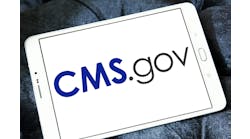Federal Judge Approves UnitedHealth Group’s Change Healthcare Acquisition
In a high-profile antitrust case, a federal judge on Monday, September 19, approved the planned acquisition of Change Healthcare Inc, by UnitedHealth Group Inc., which had been halted by the Justice Department’s intervention.
As Bloomberg’s Leah Nylen wrote on Monday afternoon, “UnitedHealth Group Inc. won court approval for its $7.8 billion acquisition of Change Healthcare Inc., defeating a Justice Department lawsuit that sought to block the deal. The decision by a Washington federal judge Monday is a win for UnitedHealth Group, which has sought to diversify its business beyond insurance. The company plans to merge Change -- which operates a network used by doctors, hospitals, dentists and pharmacies to exchange health insurance claims for reimbursement -- with its Optum Insight data and consulting business. In a one-page order, US District Judge Carl Nichols ruled in favor of the merger and directed the companies to divest ClaimsXten to TPG Capital, as proposed. Shares of Change rose by more than 7 percent in early trading Tuesday. UnitedHealth shares were little changed.”
A spokesperson for UnitedHealth said that the company looks forward to “combining with Change Healthcare as quickly as possible,” in an email to Bloomberg.
As a staff report by Reuters noted on Monday that “The Justice Department had filed a lawsuit in February aimed at stopping the $8 billion acquisition, saying the deal would give the largest U.S. health insurer access to its competitors' data and ultimately push up healthcare costs. The department's top antitrust official, Jonathan Kanter, said they are ‘reviewing the opinion closely to evaluate next steps.’ UnitedHealth announced the all-cash deal in January 2021, saying it would help streamline administrative and payment processes. Judge Carl Nichols said in a brief order on Monday that he would deny the government's request to stop the deal, and ordered the companies to go forward with an asset sale that they had proposed. The order follows a trial in the case in August in the U.S. District Court for the District of Columbia. UnitedHealth said it was ‘pleased with the decision’ and looked forward to combining with Change as quickly as possible. The Justice Department had said that UnitedHealth and Change Healthcare offer competing software for processing healthcare claims and together serve 38 of the top-40 health insurers in the country. The department argued that access to the claims would give UnitedHealth a view into rivals' health plans, including Humana Inc (HUM.N), Anthem Inc and others.”
The Reuters report continued thus: “The loss for the Justice Department follows a recent decision by a Federal Trade Commission judge that genetic analysis equipment maker Illumina should be allowed to buy cancer detection test maker Grail - a move opposed by the agency.” And, it added, “The department's top antitrust official, Jonathan Kanter, said they are ‘reviewing the opinion closely to evaluate next steps.’”
On Monday evening, the Wall Street Journal’s Anna Wilde Mathews and Brent Kendall reported that “U.S. District Judge Carl Nichols ruled for the companies in an opinion that he kept under seal for now because he said it ‘may contain competitively sensitive information.’ The judge said he would release a redacted public version of the ruling in the coming days. In a one-page public order, he denied the Justice Department’s request to block the companies from completing the deal. The court ruling represents an early blow to stepped-up antitrust enforcement by the Biden administration, which sued in February to block the deal. The Justice Department’s top antitrust official, Jonathan Kanter, said the department disagreed with the decision and was considering its next steps,” they wrote, quoting Kanter as stating that “Protecting competition and access to affordable healthcare is of the utmost importance to the antitrust division and the Department of Justice.”
Further, Mathews and Kendall wrote, “The decision is a triumph for UnitedHealth, which owns the largest U.S. health insurer and a healthcare operation that comprises thousands of doctors as well as clinics, surgery centers and other assets, along with a powerful conglomeration of health data.” They added that “UnitedHealth had agreed to divest business assets related to claims-processing to address competition concerns, an offer the Justice Department had dismissed as insufficient. Judge Nichols in his order required UnitedHealth to make that divestiture.”
And, Mathews and Kendall noted, “UnitedHealth’s deal for Change, announced in January 2021, will bring the health-technology company under the company’s Optum health-services arm. UnitedHealth had argued that its combination with Change could help improve care by getting better information to doctors, and reduce waste. It agreed to pay nearly $8 billion for Change and assume about $5 billion in debt. The Justice Department had argued that the deal would give UnitedHealth a virtual monopoly on an important tool that health insurers use to determine when a claim should be paid. And it said the company shouldn’t be allowed to own Change Healthcare’s data clearinghouse, which rival insurers use to compete with UnitedHealth. The judge, an appointee of former President Donald Trump, signaled his skepticism of the lawsuit in a hearing earlier this month. A trial took place in August.”
As Mark Reilly of the Minneapolis/St. Paul Business Journal wrote on July 29, “UnitedHealth first announced the deal for Nashville-based Change Healthcare in early 2021, seeking to fold Change into its Optum health-services division. Valued at roughly $13 billion at the time of the announcement, it was easily the largest M&A deal announced by a Minnesota company last year. However, federal regulators — along with attorneys general in Minnesota and New York — sued to block the acquisition, claiming the deal would hurt competition because it would give UnitedHealth too much insight about its rivals in the insurance and health technology fields u


